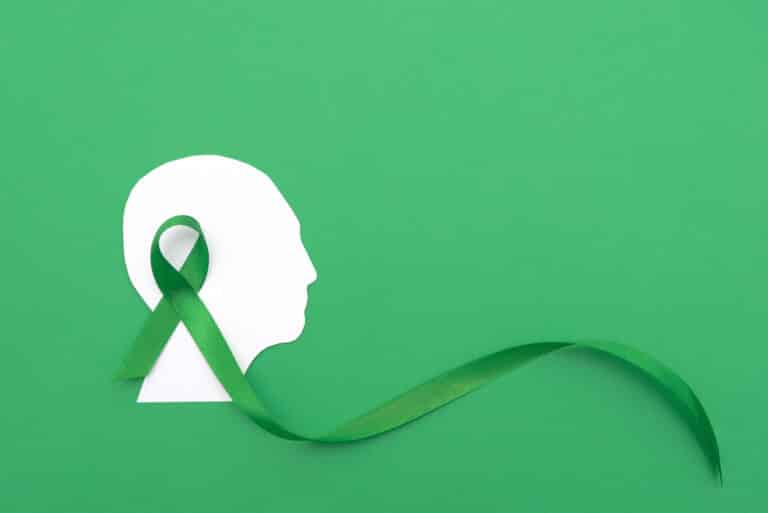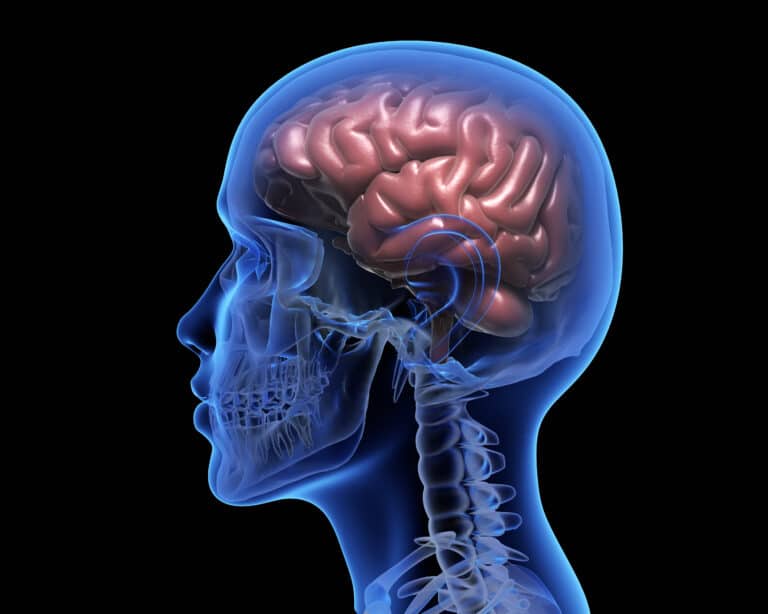Up to 75% of people will experience dissociation at least once in their lives, but only 2% are diagnosed with a dissociation disorder.
Dissociation anxiety is not a disorder in and of itself. It is a symptom that relates to anxiety.
Have you experienced dissociation? Do you understand what caused the episode?
Read on to find out more about dissociation anxiety, its causes, and ways to manage it.
What Is Dissociation Anxiety?
Dissociation appears on the trauma spectrum, and it explains cases where dissociation becomes the main way you process stressful situations or intense emotions.
If dissociation episodes become a common experience, you may have a type of dissociation disorder.
Dissociation describes the feeling of being disconnected from your surroundings or yourself. In essence, it removes you from the present moment in an attempt to help you cope with a situation or emotion.
Your body tries to protect itself from overwhelming emotions, traumatic experiences, and traumatic memories through dissociation.
Dissociating can temporarily relieve feelings of anxiety, shame, fear, or even anger, but it isn’t a long-term solution to the issues that cause these emotions.
Dissociation Anxiety vs Generalized Anxiety Disorder
Because dissociation is often triggered by anxiety, it’s easy to confuse dissociation anxiety with generalized anxiety disorder.
There is an overlap between the two, but the key difference is how the body copes with the overwhelming situation or trauma.
Generalized anxiety is characterized by excessive worry. The body is on-edge and in a state of hyperawareness. This type of anxiety brings with it constant, low-lying stress.
Dissociation anxiety, on the other hand, results in the complete removal of your typical emotional response. You don’t feel anxious because you don’t feel anything; your mind-body connection isn’t functioning as it usually does.
Signs and Symptoms of Dissociation Disorder
Symptoms of dissociation disorder typically develop during or after a traumatic event to control your emotions and memories. Stressful situations can heighten symptoms to such an extent that they affect your everyday function.
Individual symptoms will differ from person to person and depend on the nature of the dissociative disorder they suffer from.
Some of the most common symptoms of dissociation anxiety include:
- Out-of-body experiences, such as feeling like you are watching your body from above or seeing a movie of yourself
- Disconnection from surroundings
- Emotional numbness, emotional dissociation, or detachment from your emotions
- Dissociative amnesia (i.e., forgetting about specific times, events, people, or personal information)
- Related mental health issues such as generalized anxiety, PTSD, depression, BPD, thoughts of suicide, and substance abuse disorders
- A lack of self-identity
- Detachment from sensations of pain
Any combination of these symptoms may be present during dissociation and may last for a short time afterward. This is known as a dissociation episode.
For some people, particularly those with dissociative disorders, these symptoms can last for long periods of time or constantly.
How to Know If You Have Dissociation Disorder
Recognizing the symptoms of dissociation in someone else can be tricky. Dissociating is more extreme than simply “zoning out” during the conversation, but it’s hard to tell the severity of the situation if you don’t know what you’re looking for.
Doctors don’t have a “dissociation test” yet, but they will run through dissociation symptoms during their diagnosis to determine whether you have a dissociative disorder or not.
Regular dissociation episodes can negatively impact:
- Work
- School
- Sleep Patterns
- Attention Span
- Social Capability
- Overall Mental Health
Treatment and medication can help lessen dissociation and help you maintain your regular productivity and wellness.
Treatment for Dissociation Anxiety
Treatment for dissociation disorders can involve medication, therapy, or a combination of the two.
Therapy methods include:
- Cognitive-behavioral therapy (CBT)
- Dialectical behavioral therapy (DBT)
- Eye movement desensitization and reprocessing (EMDR)
There are currently no medications that directly treat dissociative disorders. However, antidepressants, anti-anxiety medications, and antipsychotic medications are often used to help alleviate mental health symptoms related to dissociation anxiety.
Ways to Cope with Dissociation Anxiety
While working through the underlying cause of dissociation anxiety is the only way to “cure” dissociation, there are several coping techniques that can help you move through a dissociative episode.
1. Change Temperatures
To help bring you out of a dissociative episode, expose yourself to different temperatures. Feeling hot and cold water, for example, can bring awareness to your body.
Finish a hot shower with a cold burst of water or hold an ice cube until it melts in your hand.
2. Breathing Exercises
Breathing exercises are wonderful ways to ground yourself when you’re dissociating or feeling anxious. Slow, controlled breathing helps calm the mind and make you aware of your body and your surroundings.
Inhale for 5 sentences, hold your breath for 7 seconds, and then breathe out for 8 seconds. Repeat this sequence for as long as you need to.
3. The 5-4-3-2-1 Method
Intentionally taking note of your surroundings can be helpful during dissociation. This method engages all of your senses and roots you in the present moment.
List 5 things you can see, 4 things you can hear, 3 things you can touch, 2 things you can smell, and 1 thing you can taste.
4. Affirmations and Anchoring Phrases
Creating affirmations or anchoring phrases for yourself is a powerful way to regain focus. Repeat basic sentences and information for as long as you need to.
Some phrases to try include:
- My name is (name)
- I am (age) years old
- I am safe
- I live in (city)
- My front door is (color)
5. Distraction With Categories
Dissociation anxiety is often triggered by intense emotion, so distraction from your emotional side can help you come out of a dissociative episode.
Focus on practical topics and facts. Try to list as many items as possible in different categories. Categories could be anything from names you like and state capitals to animal breeds and characters from your favorite movie.
Treatment for Dissociation Anxiety in Mission Viejo
Dissociative episodes can be scary if you don’t know how to deal with them. However, working through intense emotions and traumatic experiences is the first step to overcoming dissociation disorder.
There are many ways to handle dissociation anxiety without medication. Do you want to use holistic solutions to work through dissociation? We are here to help at Southern California Sunrise Recovery Center. If you or a loved one have experienced dissociative anxiety, contact us to set up an appointment and begin your journey to healing today!






